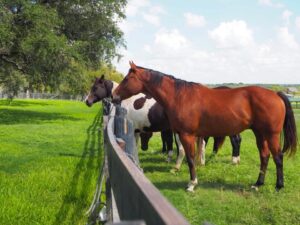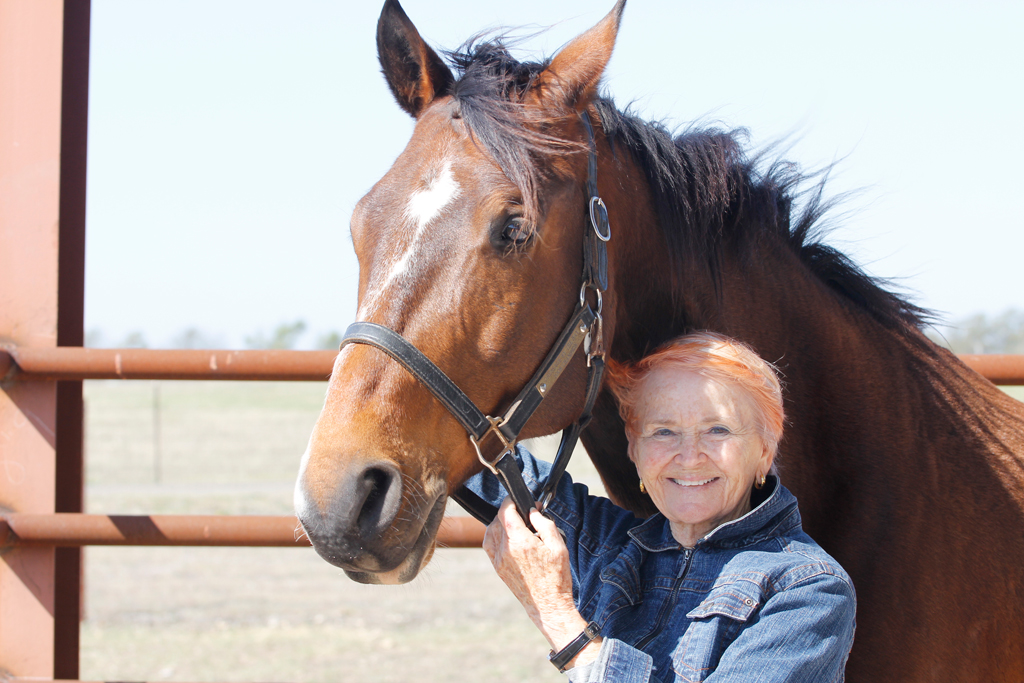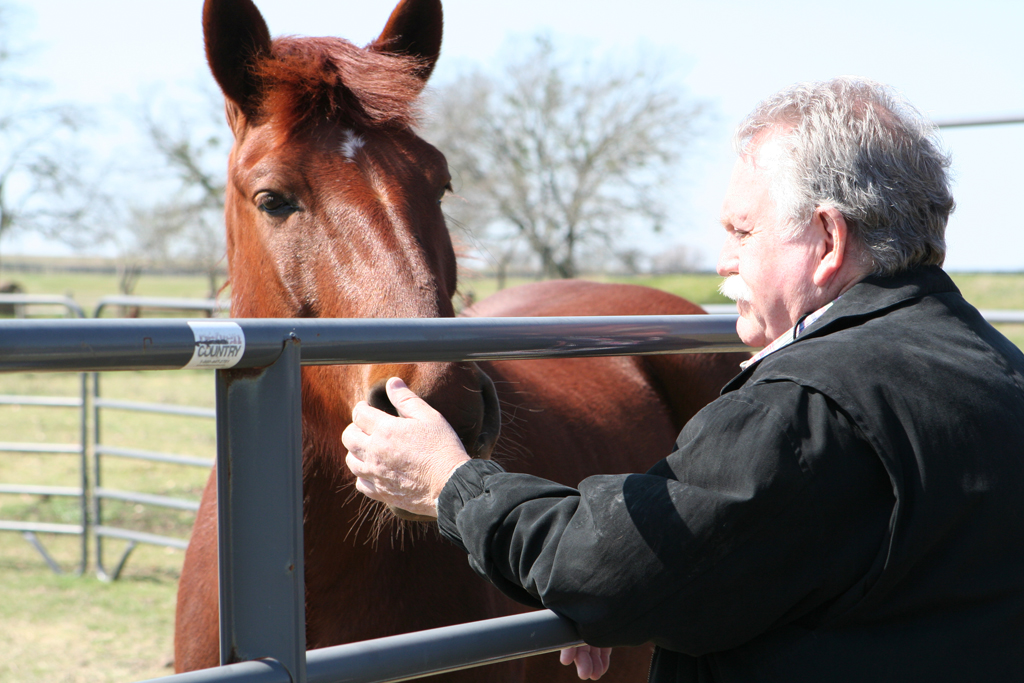 Why Equine-Assisted Therapy at The Arbor?
Why Equine-Assisted Therapy at The Arbor?
Humans need connection. Connection is fundamental to our sense of safety and belonging. It allows us to thrive, be curious, create, and explore. Connection is the foundation of healthy relationships and a strong sense of community. In connection, we find joy, compassion, peace, and well-being.
Disconnection occurs when traumatic life experiences disrupt our sense of safety and belonging. We shift into survival with tremendous amounts of fear and uncertainty. Our relationships fragment. We fight, isolate, and dissociate. Addiction becomes our solution to the pain.
Recovery is reclaiming our sense of Connection—with ourselves and others. It begins with willingness.
As with humans, horses also have an innate need for connection. They, too, find a sense of safety and belonging within a connected herd. Just as humans undergo painful life experiences that disrupt connection, so do horses. The Arbor’s Equine Program, facilitated by Sacred Presence, seeks to help both humans and horses regain connection and build healthy, fulfilling relationships.
“Working with the horses is a way to return to nature, expand our hearts and minds in ways we never thought possible. It facilitates healing at a deep level, those wounds that have left us diminished and fragmented.”
– Mary Lynn Szymandera, LCDC, CEIP
Experiential and Equine-Assisted Therapy at the Arbor
Equine-assisted therapy at The Arbor is provided through Sacred Presence. Located adjacent to the campus of The Arbor, Sacred Presence offers clients two opportunities to explore connection and healing within their own bodies:
The Arbor Inclusive Services
All Arbor clients receive weekly experiential group sessions led by Sacred Presence team members. Steeped in the understanding of the effect of trauma on the embodied self, these sessions target:
- The neuroscience of trauma and addiction.
- The body’s response to trauma.
- The importance of regulation, co-regulation, and neuroception.
- Loss and recovery of connection.
- The body’s need for connection and nurturing.
The Arbor Inclusive Services is a trauma-informed, holistic approach based on the foundational principles of Natural Lifemanship. Sessions encompass:
- Psychoeducation
- Mindfulness and movement
- Energy and breathwork
- Meditation practices
- Nature-based experiences
- Inter-relational practices
- Drum Circle
- The Arbor Inclusive Services involves minimal interaction with horses.
Immersive Equine-Assisted Therapy (Fee-Based)
Arbor clients have the option to engage in intensive, one-on-one equine-assisted therapy with a licensed counselor and partner horse. Sessions typically run 90 minutes and are held twice a week. Sessions offer deeply immersive, explorative, and healing experiences. (Clients interested in our Immersive services are invited to talk to their Admissions Representative.)
Sacred Presence Immersive Equine-Assisted Therapy is NOT a riding program. The focus is on building a relationship with the horse rather than horsemanship skills. Healthy, connected relationships are mutually beneficial and support intimacy, vulnerability, and personal growth.
Sacred Presence Immersive Services complement and enhance 12-step recovery (but do not require 12-step recovery to be effective). Some of the benefits of our Immersive services are:
- Reconnecting to the Self, a vital step in connecting to others.
- Deeply exploring relationship patterns, origins, and underlying belief systems.
- Shifting into authenticity, congruency, and self-acceptance.
- Learning how to repair relationships on a deep, embodied level.
- Recognizing stress responses and learning ways that promote connection rather than conflict.
- Somatic practices to deepen mindfulness and grounded presence.
- Offering safety and connection to others.
To learn more about our equine program, please visit Sacred Presence Equine Services.
Frequently Asked Questions About Equine-Assisted Therapy
Equine-assisted therapy supports addiction recovery by helping individuals build trust, establish boundaries, and develop emotional awareness. Working with horses enables participants to reflect on their behaviors, gain insights into their relationships, and practice healthier ways of connecting with others in a safe and nonjudgmental environment.
No prior experience with horses is necessary to participate. The therapy is designed to be accessible to everyone, regardless of their familiarity with horses. All interactions are guided by experienced therapists and equine specialists who ensure a safe, supportive experience tailored to individual needs.
Horses are highly intuitive and sensitive animals, capable of reflecting human emotions and behaviors. This unique ability allows them to serve as a mirror for participants, offering immediate feedback and fostering self-awareness. Their nonjudgmental nature makes them ideal partners in the therapeutic process, helping clients feel safe and understood.
Yes, equine-assisted therapy is often used as a complementary approach alongside traditional therapy and counseling. It provides a hands-on, experiential form of healing that can enhance the effectiveness of other treatment modalities, including cognitive-behavioral therapy and group counseling.
While equine-assisted therapy can be beneficial for many individuals, its suitability depends on each person’s comfort level, interests, and treatment goals. Therapists will work with clients to assess whether this unique approach aligns with their needs and preferences.


Contact The Arbor Behavioral Healthcare and Sacred Presence for Equine-Assisted Therapy
If you or a loved one resides in Austin, Texas, or the surrounding area and is struggling with addiction, The Arbor can help. Addiction may create a sense of disconnection from oneself and others, but recovery is all about finding connection again. Equine-assisted therapy can help.
Sustained recovery and sobriety for you or a loved one are our mission and passion. Call 844.413.2690 today or contact us online to begin your journey toward recovery.
